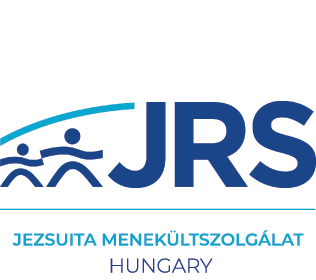Mission in Croatia: four days in Opatovac (october 28-31)
We arrived to the Opatovac transit camp established for refugees on the serbian-croatian border on Wednesday at 8 am. As volunteers within the Hungarian Jesuit Refugee Service, we came in support of our Croatian JRS colleagues. Our purpose was to offer our help where it was most needed, get a better understanding of the situation and set the basis for an efficient and harmonious Hungarian-Croatian Jesuit cooperation in the field of refugee service.
Together with many other NGOs, the volunteers from the Croatian JRS work 24 hours a day in the camp, and their efforts are coordinated by the Croatian Red Cross. Since mid-September, there have been between six to ten thousand refugees transiting through the camp, therefore the work done by NGOs is a considerable support to the police and the military. Refugees are coming from Serbia and rarely stay more than 48 hours in camp before being sent in buses and trains to the Slovenian border.
My first impression after walking through the camp was that the volunteers and the police worked together in a very gentle and efficient way. While the police is in charge of maintaining order and security in the camp by organizing the refugee movements and stopping the hustle wherever it happens, the volunteers distribute clothes, blankets, food and hot tea and help providing special shelter to families with little children. This is what we did too, at our morning (6 am to 2 pm), afternoon (2 to 10 pm) or night shifts (10 pm to 6 am). There are many interpreters volunteering in the camp as well, and there is indeed a grreat need for their help, to provide tracking service for separated families and to solve other problems. There are currently four interpreters among the Croatian JRS volunteers: Mohammed, who arrived to Croatia from Somalia three years ago, Waseen, who came from Syria nine years ago, Amin, from Iran, and sister Vesna from Croatia, who spent thirteen years in Northern Africa as a member of the Little Sisters of Jesus catholic community and is fluent in arabic. It was deeply touching to see the willingness to help of these people and live among them for a few days.
Many things could be said about the camp and the work of the volunteers trying to help wherever they can. I could also discuss the entirely justified political and organizational questions that the continuous flow of refugees triggers in me and everybody else in Europe: what will happen to all these people in the near future and on the long run? Yet I believe many things have already been said and written about this. What I would like to talk about here is the many human faces that I met and encountered in the last few days.
I didn’t have the opportunity to get to know better any refugee, since they are transiting very quickly through the camp. However I’ve seen the look in the eyes of many. I’ve seen their faces at the entrance of the camp at 3 am, when they get down from the bus and wait in the middle of the freezing night to go through camp registration, and then they look at us thankfully after because we’ve brought them a cup of hot tea. I’ve seen them in the clothes’ tent, where they have been waiting for half an hour or more to get some shoes, pants, scarfs or jackets for themselves or their children. Some are asking for it gently, others in a more aggressive way, but actually they are all in great need of it. I’ve seen the look in their eyes when we go through the camp in small groups of volunteers and distribute among them some blankets or carton boxes, so that they feel less cold in the night. And all the faces, all the looks in the eyes were echoing the truth that no human life can be simplified by being melted in a political or demographic statement. The French philosopher Emmanuel Levinas says that “the face is signification, and signification without context”. We usually learn more about a person and his or her role within society in a given context. However, when two faces meet, it is all about “you” and “me”, and nothing more. It is in this kind of situation that the human dignity that we give or not to one another becomes central to our life.
After we got back to Budapest, I met with a catholic woman, who told me the following thing: “As far as this migrant question is concerned, I failed to adopt a christian attitude I can be proud of”. I felt very touched by the way she acknowledged this and recognized that the feelings that came to life in her with regards to this flow of migrants were not in line with the teaching of Jesus Christ. I have to admit that during our stay in Opatovac I personally had to fight these kind of feelings and thoughts. However, these feelings had always calmed down when I met a thankful or desperate face. These faces made me understand that my personal future will not be determined by the social consequences that this migrant flow will certainly have over the next 10-15 years on our European societies, but rather by my willingness or not to help today those who are in the need of it, and by doing so give them the human dignity that is willing to shine from their eyes and hearts.
Thanks to all the volunteers of the Croatian JRS who welcomed us among them for these few days!
Kálmán Petro-de Chalendar


